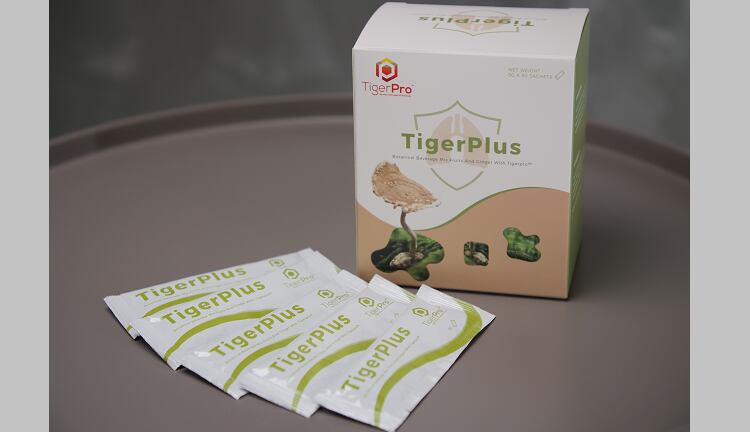Mycovation is based in both Singapore and India, and its business and research model is primarily centred around mycoprotein fermentation from mushroom mycelium to develop this as a viable alternative protein product.
According to the firm’s CEO Shiva Susarla, mycoprotein holds immense potential to emerge as a major player within the alternative protein industry because of its advantages in all the areas that are the most important to consumers, namely flavour, nutrition and sustainability.
“Currently, the entire plant based movement whether in alternative meat or alternative dairy is mainly anchored around three major sources: Pea, soy and wheat protein, and when it comes to using these to make meat or dairy analogues, all of these bring with them significant off notes, plant flavours are very difficult to mask,” Susarla told FoodNavigator-Asia.
“So what then happens from a flavour perspective is companies have to use a lot of masking and flavouring agents to cover up the taste of the plant-based sources which is obviously not what consumers want.
“Also from a texture perspective, the fibres are much shorter than animal fibres so making meat analogues with these sources means that the texture and mouthfeel is also not quite there, and this again means the need to engage in further processing.
“This is where mycoprotein from mycelium fungi offers a superior option, as it has a natural umami flavour without bringing the type of off-notes that plant-based sources do, and they also offer better texture due to naturally-longer fibre lengths that makes it more suitable for meat analogues.”
As for nutrition, although it may seem difficult to accept that a mushroom may have better nutritional benefits than plants, there are actually obvious areas where it holds an advantage.
“When we talk about protein, we really have to talk about the digestibility of that protein and the potential side effects - If you look at a lot of plant-based sources, these tend cause allergies in large segments of the population whether it's soy or pea or wheat,” Susarla added.
“Mycelium on the other hand does not cause these types of allergies - in fact there are very few allergies caused by this as compared to plant-based sources, and it also has a higher protein digestibility factor as compared to pea or wheat.
“And these are just the naturally-occurring advantages as a protein – during the fermentation process, the mycelium actually synthesises and expresses some unique enzymes and secondary nutrients in the mycelium that are not present in plant-based proteins such as sterols and beta glucans, which deliver additional nutritional benefits to consumers.”
Although Asian consumers are generally less concerned with sustainability credentials as opposed to health benefits when it comes to alternative proteins, this is nonetheless still a trend that is very much on the rise, and even in this area Mycovation believes that it holds a very distinct win over other alternatives.
“Comparing mycelium’s environmental footprint with soy, we can produce the same amount of protein in about 1/20 of the land area and using fewer resources like water. Soy is initself already much more efficient than animal meat, but I would say mycelium is exponentially more efficient,” he said.
First in Asia
Mycovation is the first firm in Asia to focus on mycoprotein fermentation, and the firm’s plans are to develop products catering specifically to Asian palate, unlike counterparts in West which focus on items like burgers or sausages.
“Our first mycoprotein product line is called Myx55, and with this we are collaborating with a large food company to actually produce a bak kwa (dried BBQ jerky) product – this is something that we can do and understand as we are Singaporean and know the local demands, but not what Western firms would be able to grasp,” said Susarla.
“Similarly, we are gaining ground in the Indian market as we know that Indian consumers eat a lot of cottage cheese and are working on creating a mycoprotein ingredient conducive for this – typically, no one in the West is really looking at this, but South Asians from Bangladesh to Sri Lanka to India to Pakistan all eat a lot of this, so there is a very big market in Asia for that.”
To make its various products, the firm works with a combination of traditional and biomass fermentation, and is developing a smart fermentation platform dubbed the ‘Three C (Configure, Construct, Consume)’ platform which has the ability to work with various strains, substrates and fermentation methods.
“We can apply a selection of microorganism strains, optimise substrate choice and liquid media and other factors accordingly when growing the fungi, so that the outcomes will cover various different new textures, tastes, and also nutritional profiles [depending] on the desired outcome,” Mycovation Co-Founder and CTO Dr Yong Xing Tan told us.
“This is how we can custom design ingredients for different use cases - For example, the type of mycelial ingredient you need to make let's say milk is very different from the type of mycelial ingredient for a burger patty – and we are creating is this unique, customised platform that can predict the ideal combination of fungal strains and substrates depending on the end use case.”
Plans for commercialisation
At this point, Mycovation is planning to launch its products on a B2B scale, with its first product line planned for a June or July 2022 launch.
“By the end of this year, we plan to have about 20 to 30 strains in our repository, so that we can work out on the combinations of strains in different substrates to bring out a whole new experience for our clients, to choose what kind of ingredients they need,” Mycovatiion Co-Founder and CPO Dr Yashaswini Balaraju added.
In terms of pricing, the firm expects that its products might be at a slight premium at this point, but believes that the health and other benefits are more than able to justify this.
“It’s not an apples for apples comparison – it’s hard to compare mycelium to say pea protein considering the superior wellness benefits with the enzymes and other advantages, so likely we’ll be at a slight premium,” said Susarla.





